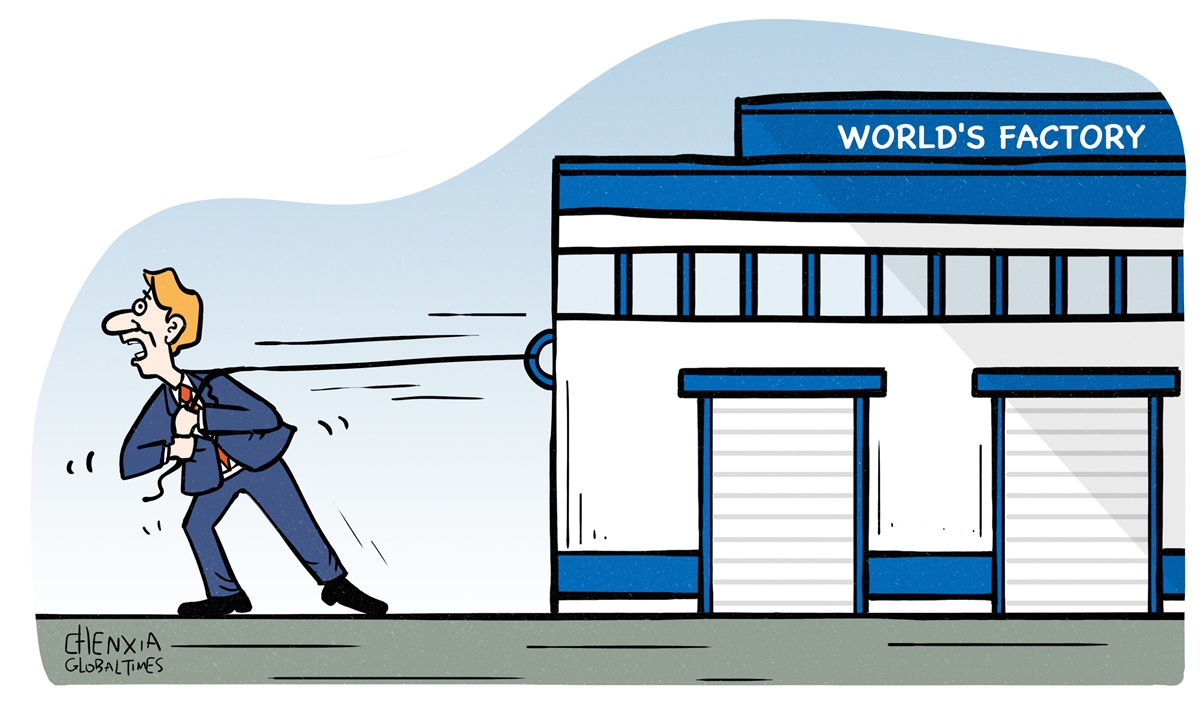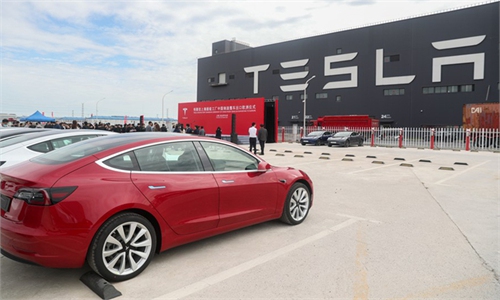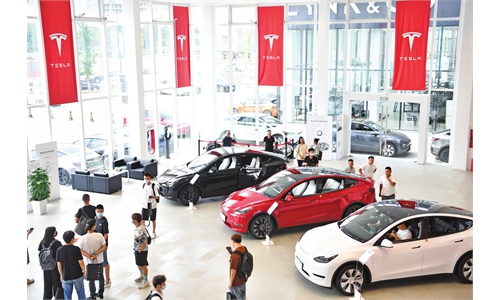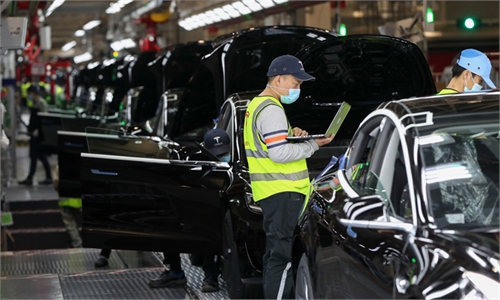
Illustration: Chen Xia/Global Times
It is not Tesla's Chinese deals but the strategic selfishness and short-sightedness of US politicians that is weighing on the development of American manufacturing.Mike Gallagher, the Republican chair of the House of Representatives' select committee on China's Communist Party, said on Monday that he was concerned about electric carmaker Tesla Inc's dependency on China, a day after the company revealed plans to open a Megapack battery factory in Shanghai, according to Reuters.
While Gallagher did not specify what exactly his concerns were, it is not hard to speculate that they are nothing more than worries that the so-called China threat or China competition could affect the development of American manufacturing sector, which is both narrow-minded and laughable.
If anything, lashing out at US companies' investment decisions in China by hyping up the need to compete with China looks like a lame political cliché that has lost its audience long time ago. It actually serves no purpose other than to expose the lack of both confidence and capability of such politicians when it comes to cultivating local industrial chain. For those politicians, the easiest way to win headlines in the current political climate in Washington may be to pander to populism and "decoupling" push from China, but that will only make their economic recovery more difficult.
Even the savviest businessman has to admit that Tesla's plan to open a Megapack factory in Shanghai, which would reportedly complement its existing Shanghai gigafactory producing more than half of its global output, makes perfect business sense. It has been standard business practice for decades to build production capacity near the product's downstream location.
Tesla's new plan in relation to the Megapack factory comes amid the US' continuing push for an industrial chain "decoupling" from China, which is evident enough of the fact that US politicians' pursuit of encircling and containing China's supply chains doesn't represent the thoughts of American companies, nor does it hinder the continuous advancement of China-US economic and trade cooperation. Because promoting "decoupling and breaking chains" is neither in line with the objective economic laws nor in the interests of companies of the two countries.
The reason why China can repeatedly attract Tesla's deals is because it has reaped lucrative benefits from the Chinese market, which has even driven its global expansion to a certain extent. China is the world's largest market for new-energy vehicles. According to the latest research from Counterpoint, China's passenger electric vehicle sales almost doubled in 2022, growing 87 percent compared with the previous year. Meanwhile, China accounted for nearly 59 percent of the global electric vehicle sales volume.
Moreover, China's sophisticated industrial system is also an important factor in attracting Tesla. China has a comprehensive modern industrial system comprising 41 large industrial categories, 207 medium ones, and 666 small ones. It is the only country in the world to obtain all the industrial categories listed under the industrial classification of the United Nations.
Indeed, China's consumer market and manufacturing capabilities have been attractive to not only US companies but also European ones. Last week, Airbus and its Chinese partners signed an agreement to expand its A320 family final assembly capacity with a second line at its site in North China's Tianjin.
Some in the West see China as a strong competitor when it comes to the development of manufacturing sector in the US and Europe. But what they don't see is that China also provides enormous development opportunities for their companies both in terms of market consumption and production capacity support. The crux is whether they can take a more pragmatic and rational attitude to China's opportunities.
The stark contrast between US politicians' "decoupling" strategy and US businesses' zeal for the Chinese market shows that only narrow-minded people turn good growth opportunities into confrontation. Unfortunately, that is the direction US politicians are plotting. Cutting off from Chinese manufacturing will never be a solution to boosting American manufacturing, but another pit politicians are digging for domestic manufacturing.



